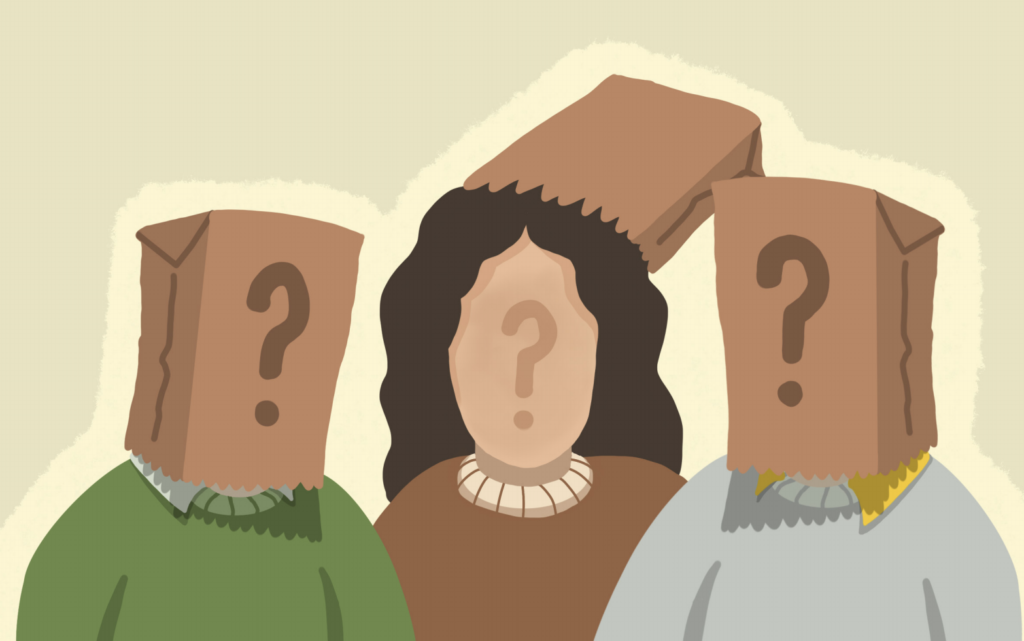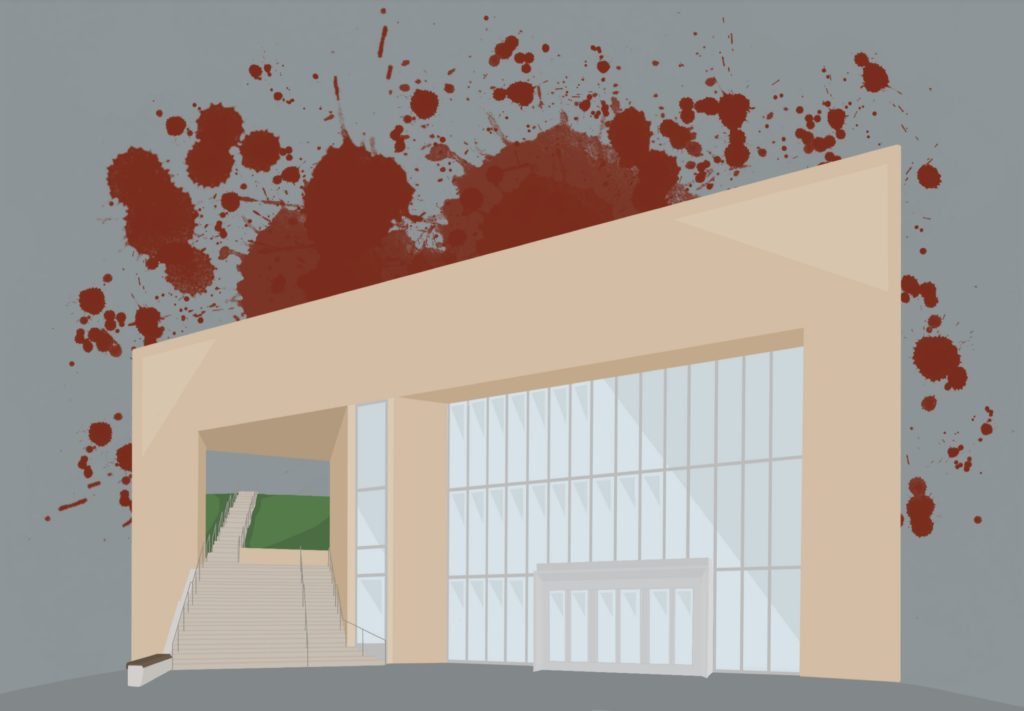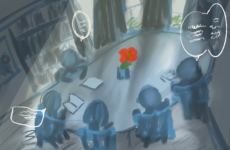
Graphic by Yujin Kim/The Choate News
I’m waiting in the passenger seat of the car, staring into the side mirror at a gas station. I get confused; I see myself
moving in the mirror, but I’m sitting still. It isn’t until the person in the mirror gets into her car and drives away that I realize that I’d been mistaken. It hadn’t been me that I had seen in the mirror but another person at the gas station.
I have induced prosopagnosia, also known as face blindness. I can remember a few faces from years
ago but, unfortunately, the more recent faces of my friends, family, and even myself have all aged beyond recognition. I can’t even find myself in photos or on Zoom, unless I recognize my clothing or background. I can’t use Instagram because I have no idea who I’m looking at, and I can’t watch movies with too many characters with the same hair color or I’ll have no idea what’s going on.
Facial prosopagnosia used to be the root of my anxiety — the act of constantly running into friends and classmates and pretending I knew who they were. Each time, their faces fell as they had to remind me of who they were. Awkward. “I have face blindness,” I explained clumsily, stumbling over the words in my embarrassment. “Oh, I’m bad with faces, too,” they sometimes said. Then, we would part ways, both of us feeling slightly worse than when the encounter began. It’s always a nightmare to know that I might have caused them to feel like they weren’t interesting enough to be remembered.
And I tried so hard to remember. When I would meet someone and have a wonderful conversation with them, I tried desperately to form some sort of a memory of what they look like. But without fail, when we headed of to class, their image blurred into nothing. I was left with a vague idea of their hair color, but I couldn’t even remember the length. It felt like I had lost something.
After enough of these encounters, I launched myself into a series of coping mechanisms and strategies. I no longer wandered through the dining hall, hoping my friends would call me over because I couldn’t find them on my own. I memorized backpacks, phone cases, favorite hoodies — anything I could use to find out who I was talking to. I felt like a stalker, finding personal details and exploiting them.
Another strategy I tried was telling my friends about my facial prosopagnosia. It went worse than I had hoped. “Wait, you think I’m someone else when you see me?” “Actually, I mostly think other people are you,” I quipped. Eventually, they began to understand, but it took time.
When I explained myself, I generally got the same question. “What about race? Can’t you remember that someone is Black?” Yes and no. No, when I meet someone casually and have a conversation with them, I will not remember their race. It is only when I’m desperately trying to find something memorable about the person that I may be able to remember their race, and even then it’s difficult.
Last year, a friend of mine mentioned that she wanted to go to Chinese Club more to connect with her heritage. “You’re Asian?” I responded. She and our mutual friend gawked at me. Apparently, she was Asian.
Coming into the school year, I came up with a new plan: defining myself by my disability the moment I meet someone. I announced my condition to my classes at the very beginning of the year, and now everyone I meet gets a mini monologue about prosopagnosia. Everyone is happy and willing to accommodate at first, but sometimes they forget, and they are disappointed when I can’t recognize them. There’s not a lot I can do about that. I don’t mind that people forget; I only tell them to spare their feelings anyway.
This year, I have gotten the quiet satisfaction out of knowing that everyone is suffering as I have, at least to some degree. “It’s so hard to recognize people with masks,” they complain. Trust me, I get it.
Then, there’s the Zoom issue. As a remote student since the beginning of the school year, I started in the fall by recognizing everyone from their Zoom backdrop. When we switched to hybrid learning, and many students returned to campus, I lost any and all chance at knowing who anyone was. My brain is filled with the names I hear — I can list
all the members of my classes, but I don’t know which faces they belong to. If they speak to me, I smile, wave, and pretend. I never, ever use someone’s name. There’s never a guarantee that it’s them.
Nowadays, I’ve accepted that I will never know whom I’m speaking to merely by seeing their face. So, I simply introduce myself with a disclaimer, and I try to stop stressing about it. On the bright side, I’ll never have any issues with self-image. You need an image to do that.




